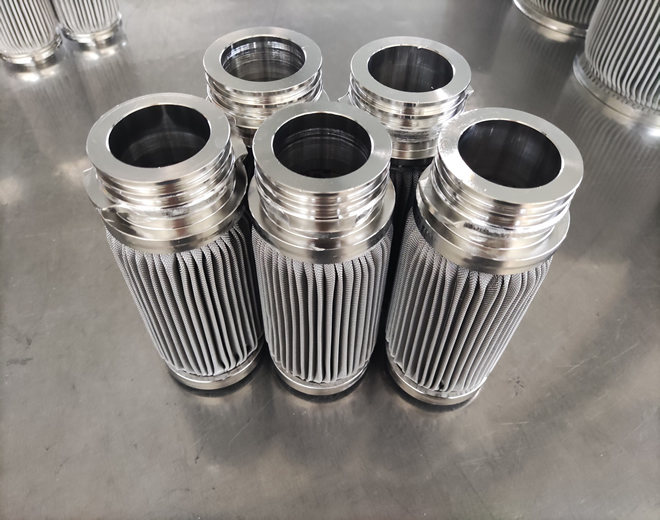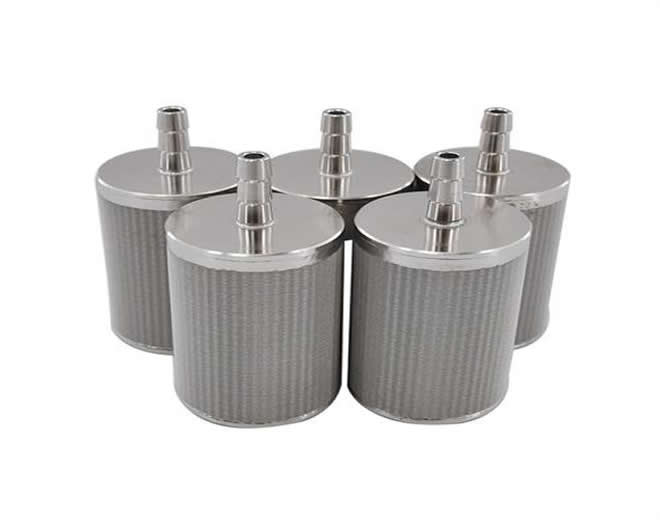Sintered filter elements are widely used in industrial and consumer applications for filtration, separation, and purification. Produced by sintering metal powders or stainless steel mesh at high temperatures, these filters offer unique advantages. Here are the main benefits of sintered filters:
1. High Mechanical Strength and Pressure Resistance
Sintered filters are constructed from multi-layer metal mesh or metal powder sintered at high temperatures, providing excellent mechanical strength and pressure resistance. This stability under high pressure makes them ideal for filtering high-pressure liquids and gases without deformation.
2. Precise Filtration Accuracy
Sintered filters have a uniform, stable porous structure, with pore sizes that can be precisely controlled as needed. This design allows them to capture particles of specific sizes, ensuring precise filtration while maintaining high permeability. This makes them suitable for industries requiring fine filtration, such as pharmaceuticals, food processing, and electronics.
3. High-Temperature and Corrosion Resistance
Made from stainless steel or other corrosion-resistant materials, sintered filters perform reliably in high-temperature and chemically aggressive environments. This makes them suitable for industries like petroleum, chemical processing, and metallurgy, where resistance to corrosion and high temperatures is critical.
4. Excellent Cleaning and Regeneration Capability
Sintered filters can be cleaned by backwashing, ultrasonic cleaning, or chemical washing to remove particles and impurities from the filter pores. This cleaning capability enables them to be regenerated and reused, extending their lifespan and reducing maintenance costs, which is ideal for environments requiring repetitive filtration.
5. High Porosity and Good Permeability
Sintered filters have a high internal porosity, typically ranging from 30% to 50%, allowing them to maintain good permeability and fluid flow while ensuring filtration precision. High porosity also reduces the pressure drop during fluid flow, thus increasing filtration efficiency.
6. Wide Range of Material and Structure Options
Sintered filters can be made from various metals like stainless steel, titanium, nickel, and bronze to meet different application requirements. Additionally, sintering techniques allow for multiple layers and different pore arrangements, making them adaptable to a wide range of complex conditions.
7. Environmental Friendliness and Durability
Sintered filters are robust and reusable, reducing the waste generated from replacing filters frequently. Their reusability and easy cleaning make them more environmentally friendly, as they have a longer life cycle and lower replacement frequency.
Summary
With their high strength, high-temperature and corrosion resistance, precision filtration, and ease of cleaning, sintered filters are indispensable in modern industry. They provide effective and reliable filtration solutions under extreme conditions, significantly enhancing the stability and cost-efficiency of filtration systems.


